To visit Reverend Canon Loughrey’s website as mentioned in this podcast, visit: https://www.redshoeswalking.net/
Charles Pakana (Victorian Aboriginal News): In the 1967 referendum, which resulted in a near 91% yes vote, Australia’s churches played a major role in providing information to their respective communities and congregations. Now, 56 years later, as we move closer towards a referendum on a First Nation’s Voice to Parliament embedded within the Constitution, we’re seeing organised religion once again taking a lead position.
In Victoria the Anglican Church is far from being an exception to this, and joining me today is Wiradjuri man, Reverend Canon Glenn Loughrey from St. Oswald’s Anglican Church in Glen Iris.
Reverend, thanks for your time.
Reverend Canon Glenn Loughrey: Good morning. Thank you. Great to be here.
Charles: Reverend, let’s have a look at the bit of the recent history on this. Now, in November 2016, a standing committee of the Anglican Church passed a resolution that stated in part that the church continued to support Constitutional recognition for Aboriginal and Torres Strait Islander Peoples. Then, separately in a communication to the co-chairs of the Referendum Council the Church also responded yes to the question, do you think indigenous peoples should have a say when Parliament and Government make laws and policies about indigenous affairs?
Now, it seems based on this, that the Anglican Church has been advocating for a Voice even prior to the Uluru Dialogues taking place in 2017. So how long has this been a matter of serious discussion within the Anglican Church?
Rev. Loughrey: Well, yes, it has been a long discussion. 31 years ago, the General Synod set up the National Aboriginal and Torres Strait Islander Anglican Council [NATSIC], and that Council acts in a similar way as we would see the Voice. It speaks into the Synod on matters relating to Aboriginal and Torres Strait Islander People. And that has been a significant foundation from which such as the items that you just spoke about came into being. [In] 2021 at the Lambeth Conference in England with the Archbishop of Canterbury, those attending from Australia signed a document which we loosely call the Lambeth Statement, which reasserts those statements that you just read out and affirm that those in present and those who signed that document affirm the quest for self-determination and the ability to speak about matters that relate to us and to those within our communities.
This step here in Melbourne is a significant step in that it is a process to make sure our voices are heard within this particular diocese. But we do have a National Aboriginal Bishop in Adelaide, the Reverend Chris McLeod in Newcastle, we have Reverend Di Langham who works directly on the issues relating to Aboriginal and Torres Strait matters for the Diocese of Newcastle, and there are people in those positions right across Australia. So the Church has taken us seriously, and we are beginning to have a voice on matters here and being able to talk to our own people about the importance of doing the same thing.
Charles: You mentioned that it was 31 years ago that the Anglican Church established this essentially a First Nation’s Voice within its own organisation. What are some of the initiatives that have arisen from that particular voice?
Rev. Loughrey: Out of that came a Covenant between the Church and the NATSIC itself to allow it to drive matters in relation to Aboriginal people. Out of that has also come opportunities to speak to Synod. It’s a bit like all of these things, we take some time to get processes in place. So we’ve been talking to Synod on matters that relate to us, about how do we gather Aboriginal people and Torres Strait Islander people within the church, how do we bring them and give them a voice about how things should happen.
We meet once a year, and potentially we have the possibility of having 63 Aboriginal and Torres Strait Islander people from around Australia coming together to talk about those matters. And that has been a vital part because it means that for a lot of our people who are isolated, particularly those in the North and the West, it allows them the opportunity to get support, speak about things that perhaps are not the same issues down here in the South and the East, and allow us to support them and their Bishops.
Now, as the chair of that organisation, I write regularly to Bishops on matters. We wrote to them in relation to the Cassius Turvey situation, and Adelaide at their General Synod took the document that I wrote and has now made that into a working party for them in the Adelaide diocese to work through how they might take action to ensure those kind of activities don’t happen again.
Charles: Things though are changing a bit for you in the Anglican Church, although more specifically for you, you’ve now been given a, we can say, a leave of absence from your normal pastoral duties, and you seem to be out there working not just within the Anglican Church community but right across a multi-faith community, talking about the upcoming referendum and what is actually behind this call for a First Nations Voice to Parliament. So explain a bit about that for us, what you’re actually doing almost on a day-to-day basis.
Rev. Loughrey: Well, that came out of the fact that in discussions with some of the people doing the polling around how Australians see constitutional recognition and voice, that there is a considerable number of people who would be constituents of religious denominations, the over 55s, who have a large amount of questions, who want to know more information, who want to know more detail, who want to understand it better than they do now. And also, within those denominations there’s a large number of multicultural congregations, congregations of people who came here in the last 10, 15, 20 years who have been heavily involved in just setting themselves up in Australia and haven’t got the historical knowledge of what happened here. So the proposal was put to the diocese that I go out and talk to those two groups, answer their questions, provide them with good information. It’s not a you must vote yes or you must vote no campaign. It’s about just saying here’s the information. You go away, think it through and make your decision on the basis of your faith, your understanding of it, and how you understand that works.
So yes, I am working in various places. I go into schools and talk to staff. I go into churches, United Church, Catholic Church. I’m actually meeting with a Jewish community, and we are doing a whole lot of discussions about this to help people just understand more.
Charles: Is this something, this multi faith or cross faith collaboration, something that would be normal within the Anglican Church or across other churches, or is this really coming out because of this huge question that’s going to be put before the Australian people later this year?
Rev. Loughrey: I think we have done quite a lot of ecumenical things together and multi faith things together about things like refugees, child slavery, et cetera, but this is probably one of the biggest moves in terms of things relating to our own first peoples. And churches, for a whole range of reasons, are implicated in this process because of the history of our country, and it’s vital that we get across the spectrum. The other issue is that there is not a lot of clergy leaders or pastors who are Aboriginal or Torres Strait Islander in the city, so the ones that put their heads up, like myself, we tend to get requests to work across a broad spectrum.
Charles: We’ve read reports that unlike a federal election, a lot of the community aren’t going to make their minds up until very close to polling day. So there are still an enormous number of questions, calls for clarifications on the processes that will be inherent within establishing the Voice. What are the main concerns or questions that you are hearing?
Rev. Loughrey: Well, the first question you get when you open up the questions is, but I need more detail. We spend time unpacking what they mean by I want more detail, and often that is about, well, who’s going to be on the Voice? Who’s going to design how it works? What is its parameters? How far can it go? Who can it talk to? Is it representative of first people’s communities? We get questions around, we hear key first peoples who some are for yes, some are for nos, some are for I’m not sure, and we have to deal with the fact that Aboriginal and Torres Strait Islander people are as diverse as non-first peoples are, and everybody has a range of opinions and they’re all appropriate, and we need to respect that people have those places. So we talk about that.
There’s often the question about race and is this dividing race? Is this giving one race a bigger say in the Constitution than another? And we have to gently unpack the idea that right from the beginning race has been key in Australia, and this is actually strengthening our democracy by putting those two things together. But we talk through those ideas that people have. And then there’s some fears. There’s some fears about how will this affect me? How will it impact me? One person I spoke to had interest in a fishing boat, and will this affect my fishing rights? Will I be stopped from doing what I’m doing?
Charles: Oh, this is taking us back almost to Native Title arguments.
Rev. Loughrey: Yeah, there’s still some of that sitting there. The other question we get asked, and has been raised because of certain politicians who wanted to raise it, is who’s a real Aboriginal, who’s a real Torres Strait Islander?
Charles: Oh, yeah.
Rev. Loughrey: And we need to address that and talk that through and explain some of the things about where the idea of purity of race comes from. And we address all of those questions. There’s lots of questions.
Charles: Last question before we sign off on this, and we will be catching up with you later on down the track because this is going to be heading off for quite a number of months. What are some of the initiatives that you would like to see that general parishioners start to undertake within their churches and their parishes to generate greater conversation and sharing of correct information about this matter?
Rev. Loughrey: I have a website on which I provide a whole range of information and resources, everything from theological reflections through to videos that talk about this stuff in ways that people can understand. We address, for example, how’s this going to help? In one of the videos we talk about how the drying of the Darling River, in the fact that there was no water in places like Wilcannia, et cetera, could be made much better if Aboriginal people had a seat at the table. So we talk about and try and educate people.
What I would say to congregations is get good information. Have kitchen table conversations. Sit around together around that good information and talk about this, not in an aggressive or a combative manner, but in a way of understanding conversations. Listen to good commentators that will help us to understand that process. If you’re able to get to events such as the ones that I’m running, come along, bring congregations and we’ll talk. Or if you want people like myself to come to your congregations and to talk to them, then contact us. And it’s a case of being open, and be judicial about where you get your information from.
Charles: And we will be providing a link to the Reverend’s website with all those resources on the Victorian Aboriginal News Referendum 23 tapes website.
Reverend Glenn Loughrey, thanks so much indeed for your time.
Rev. Loughrey: My pleasure. Thank you.


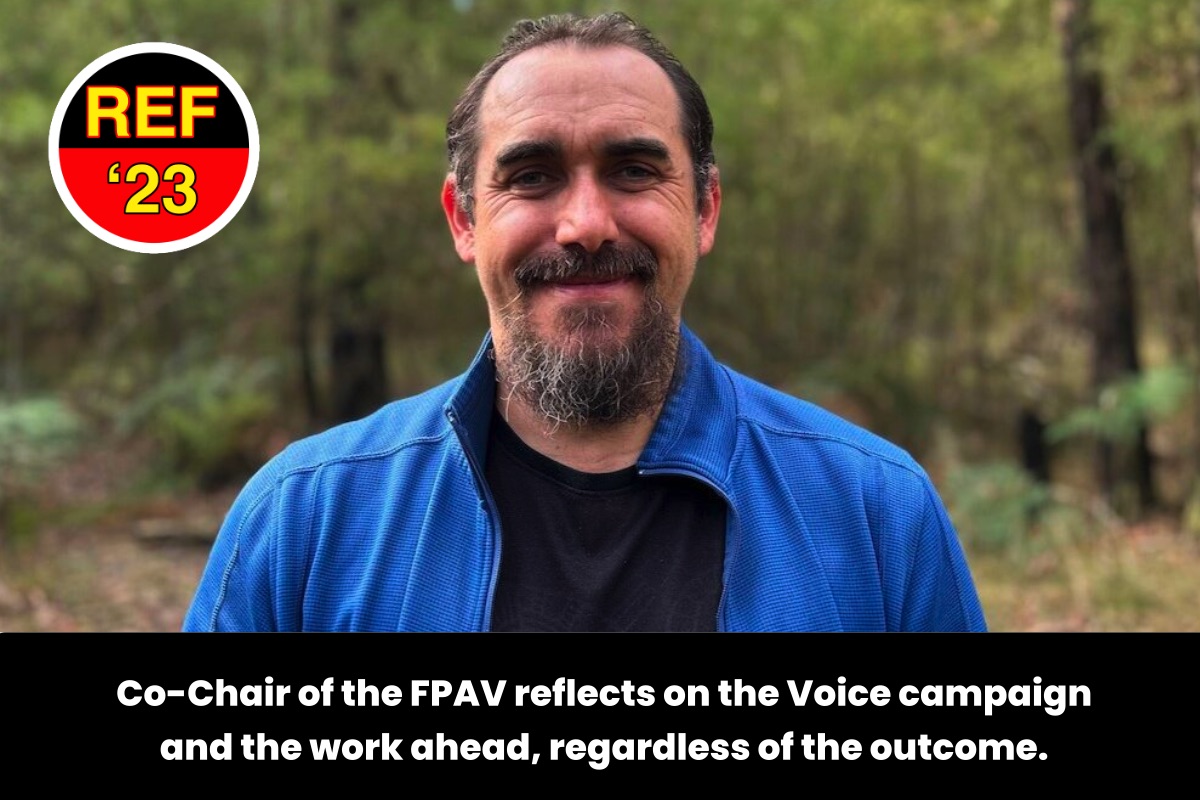
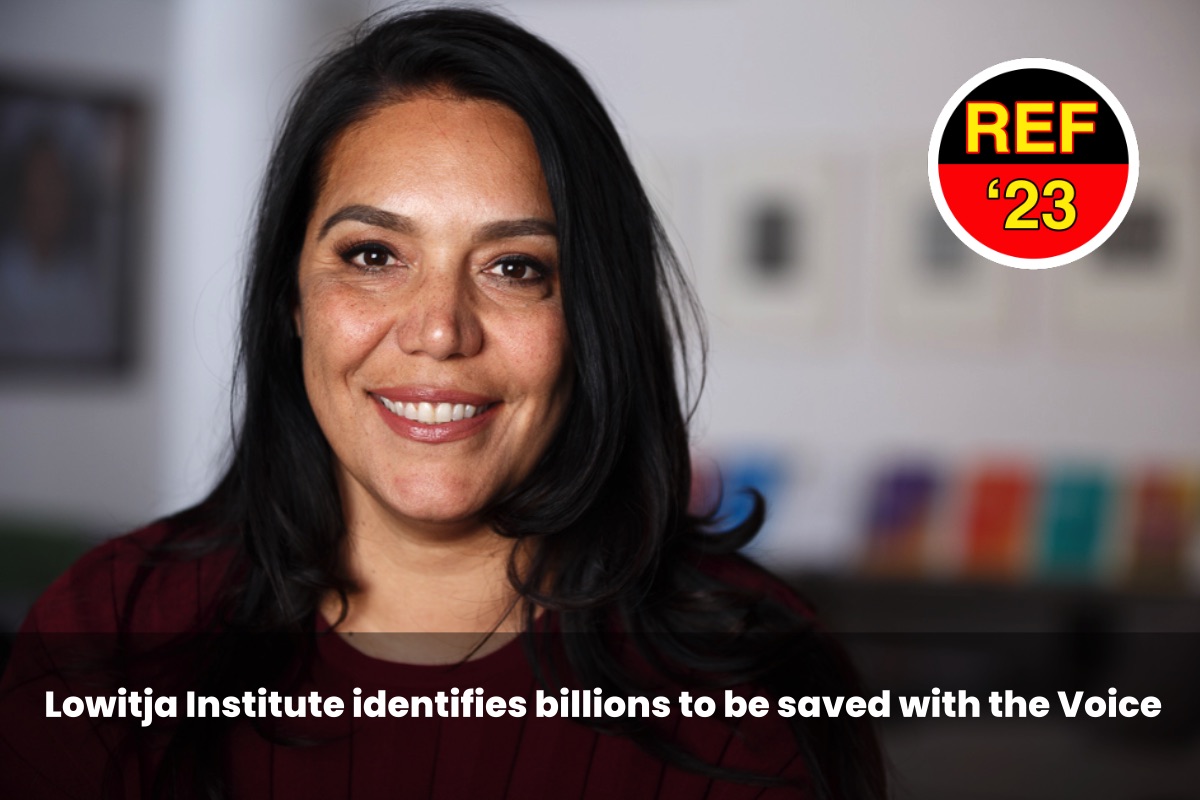
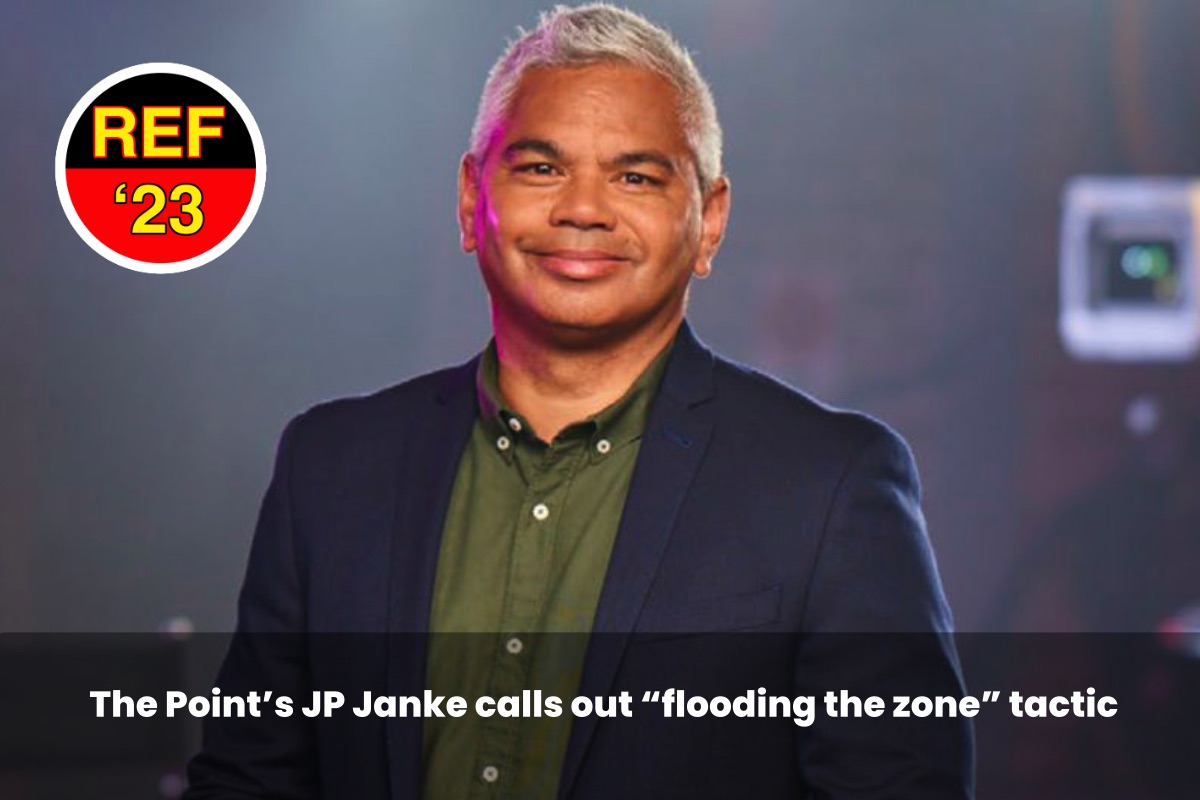
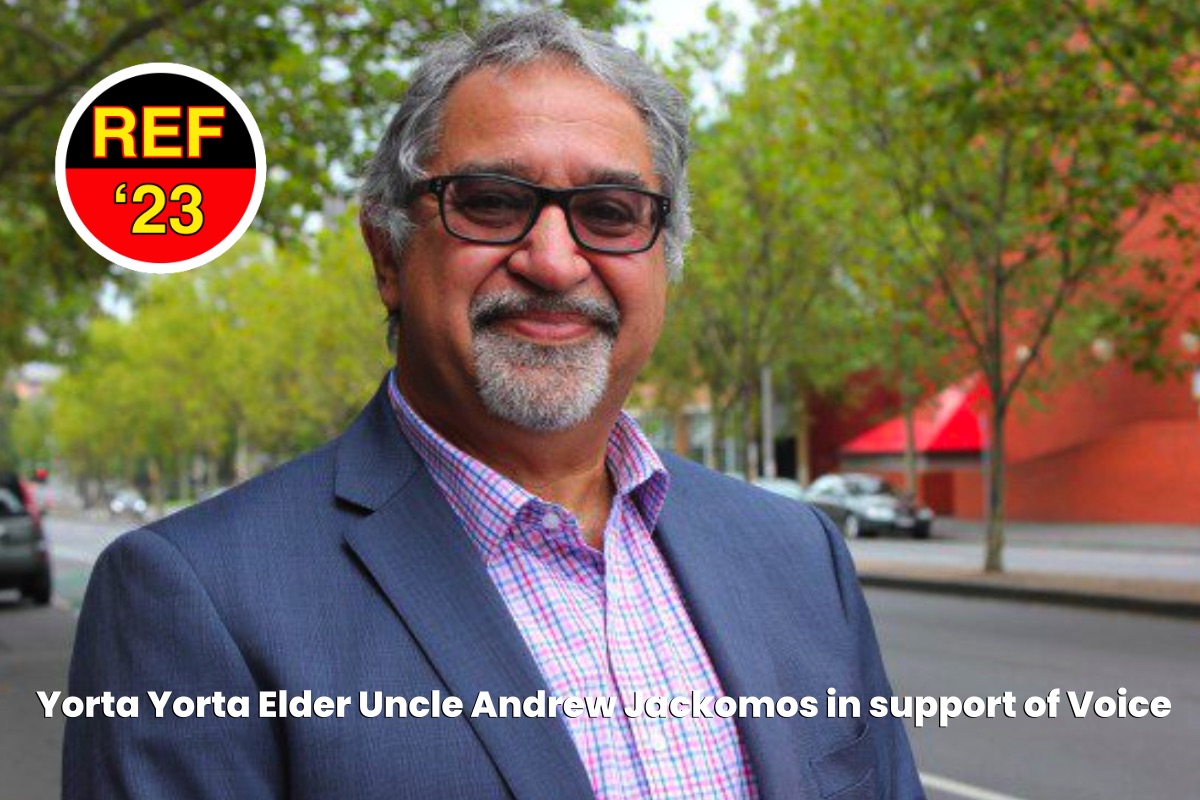
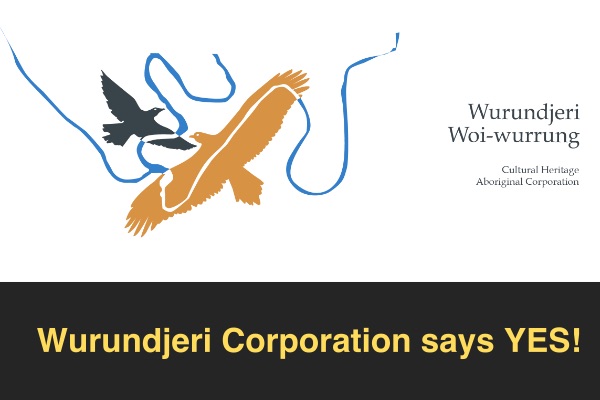

0 Comments